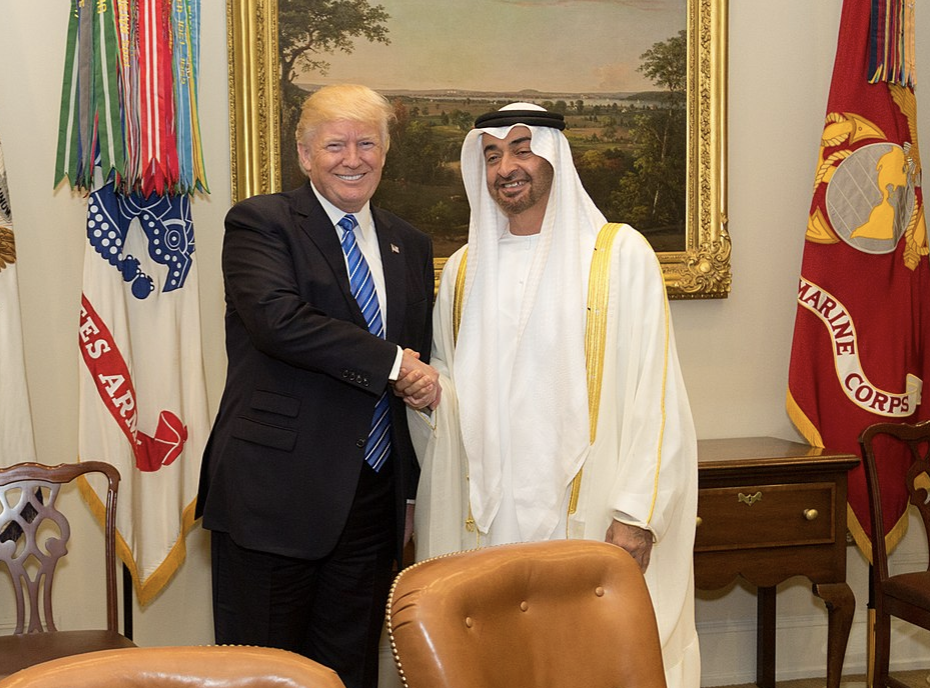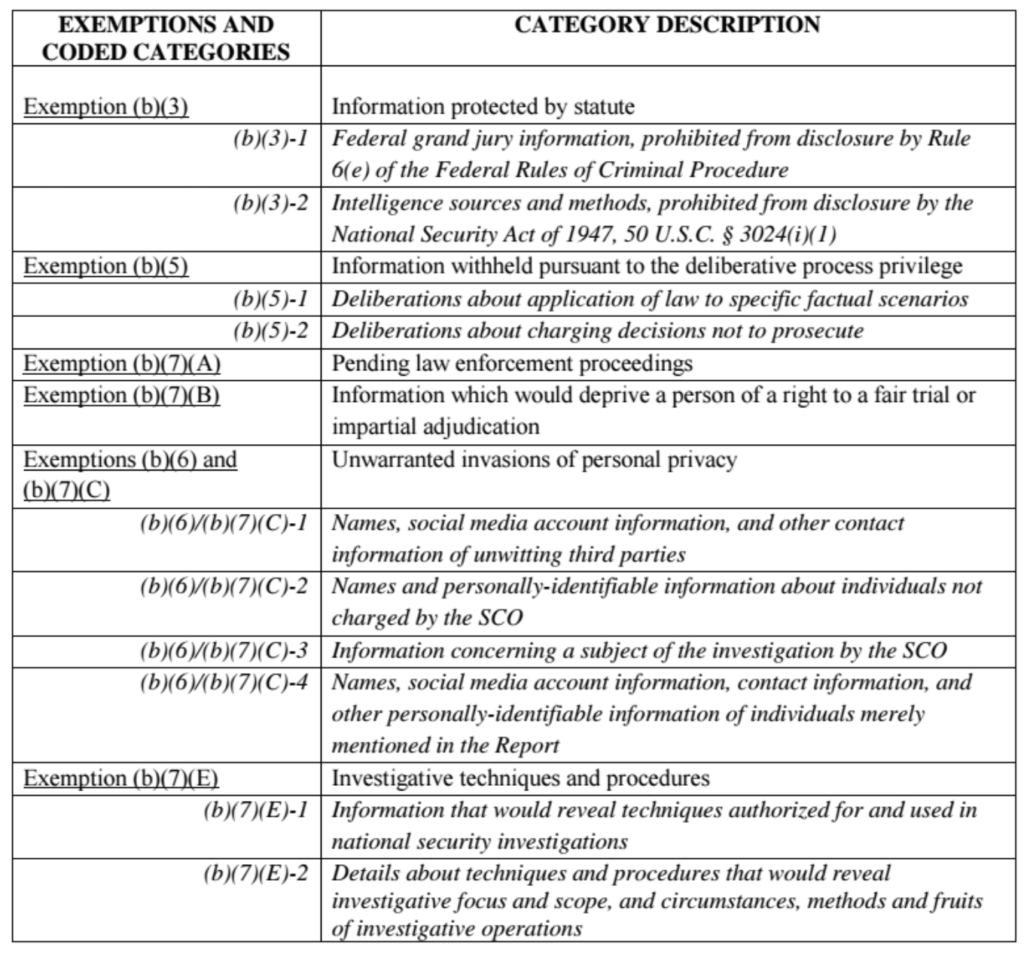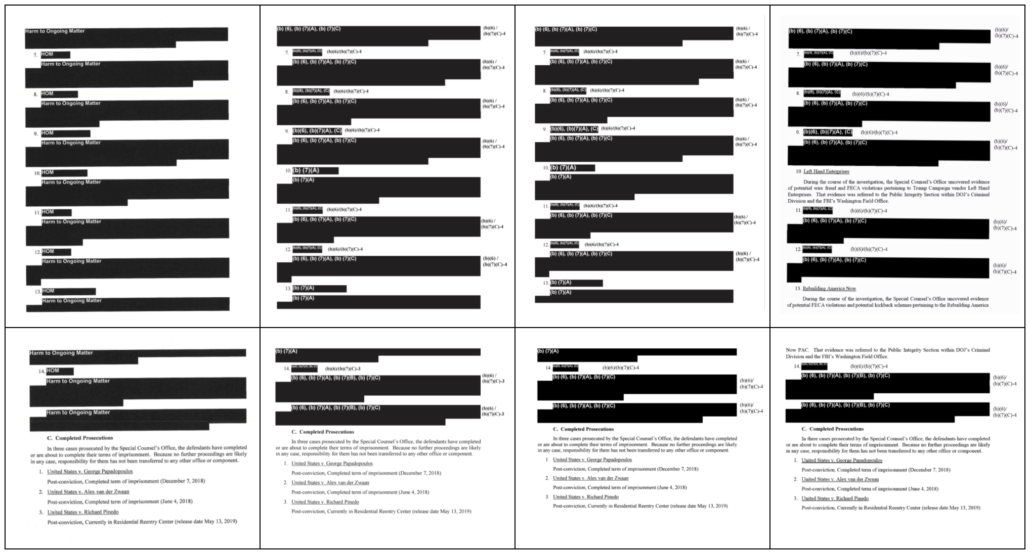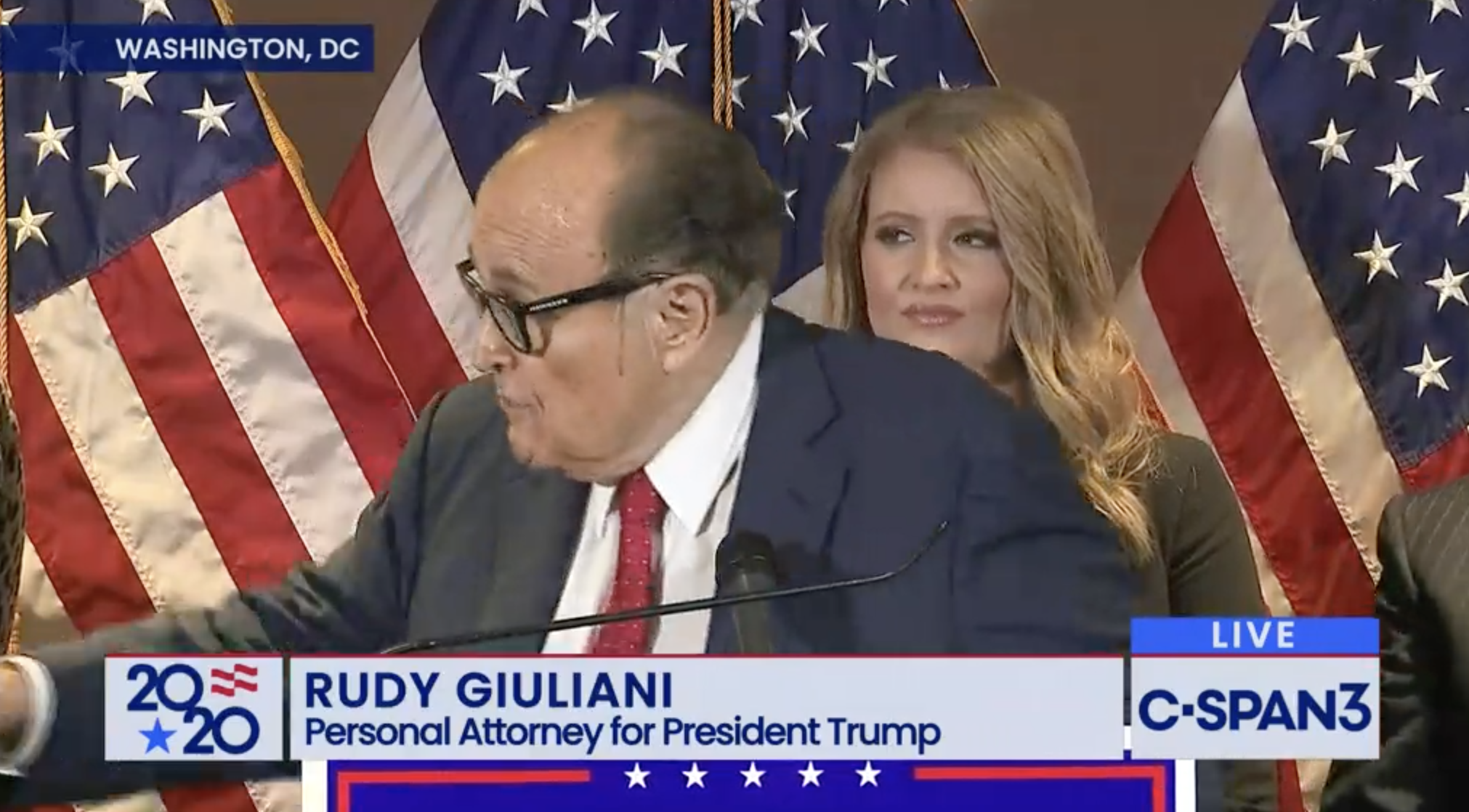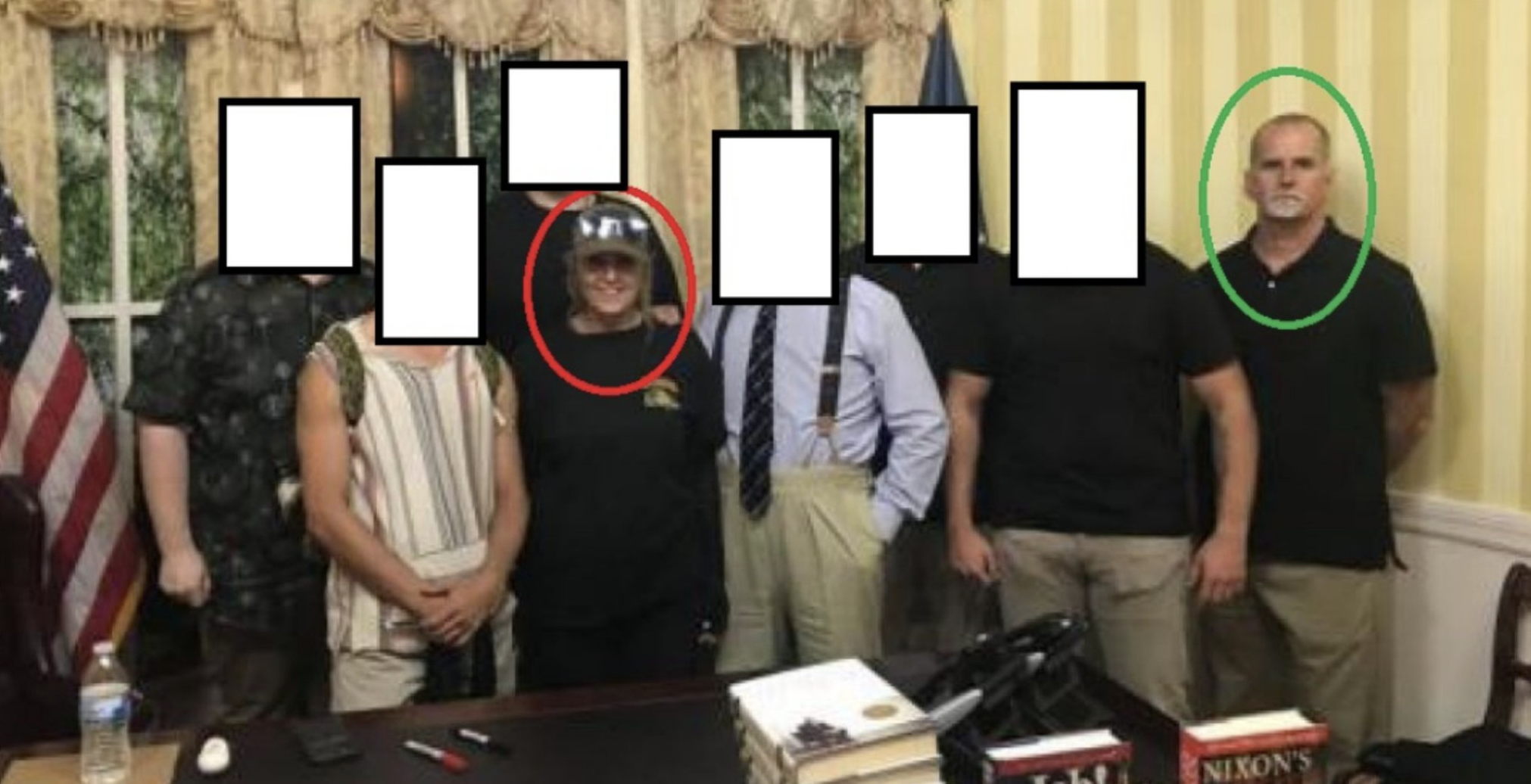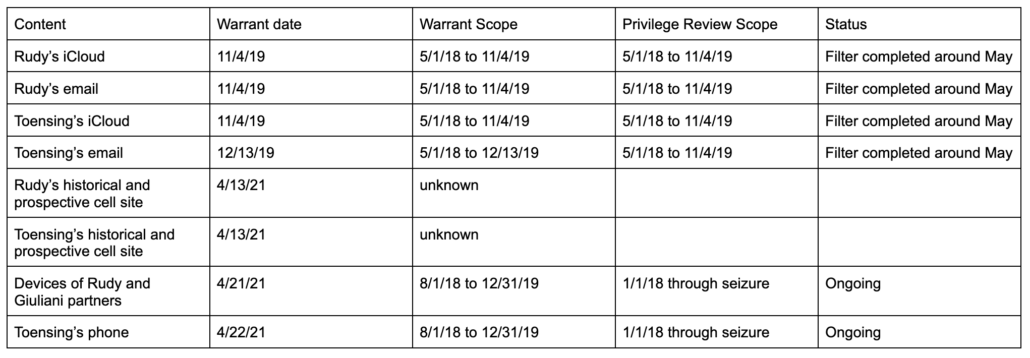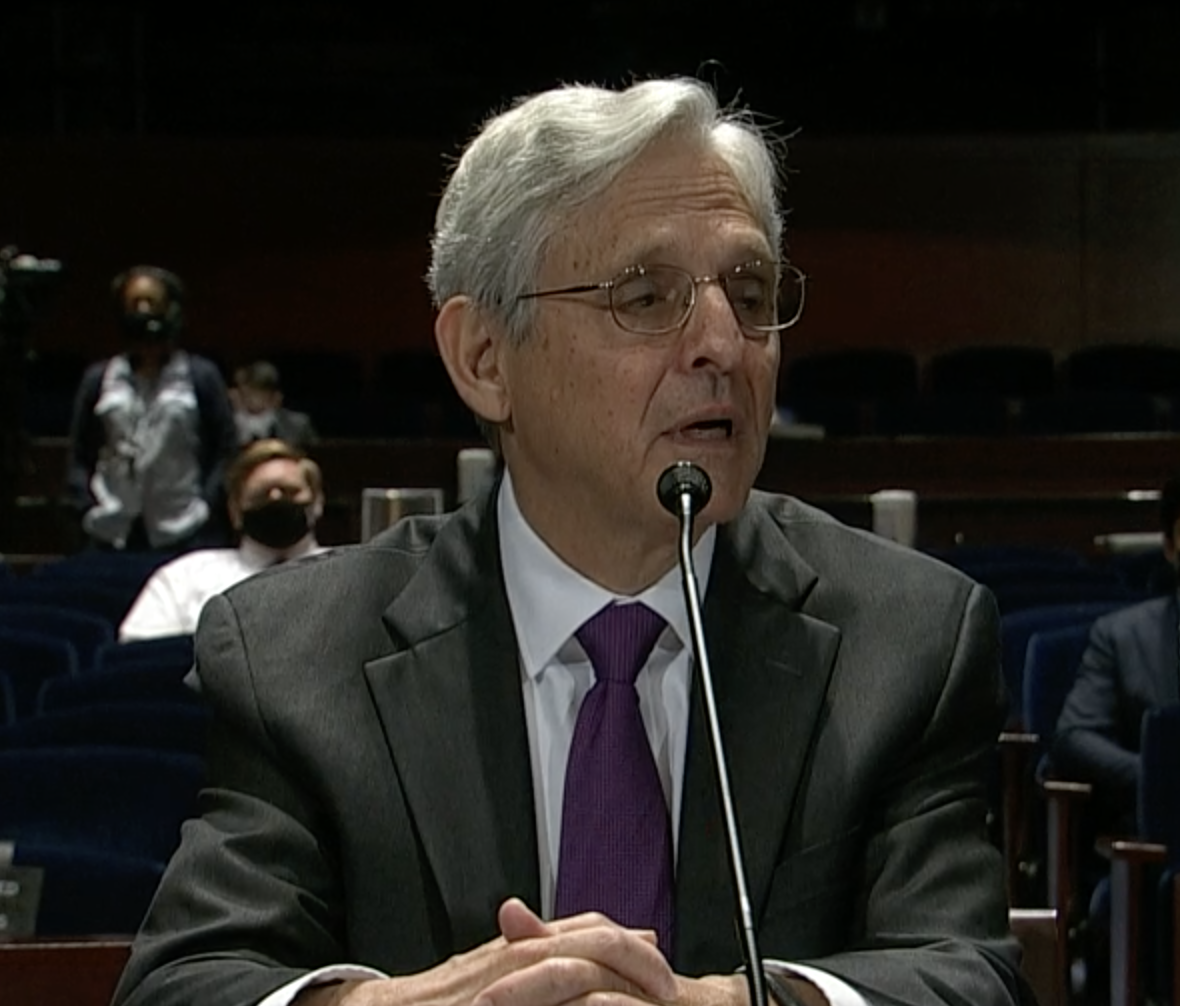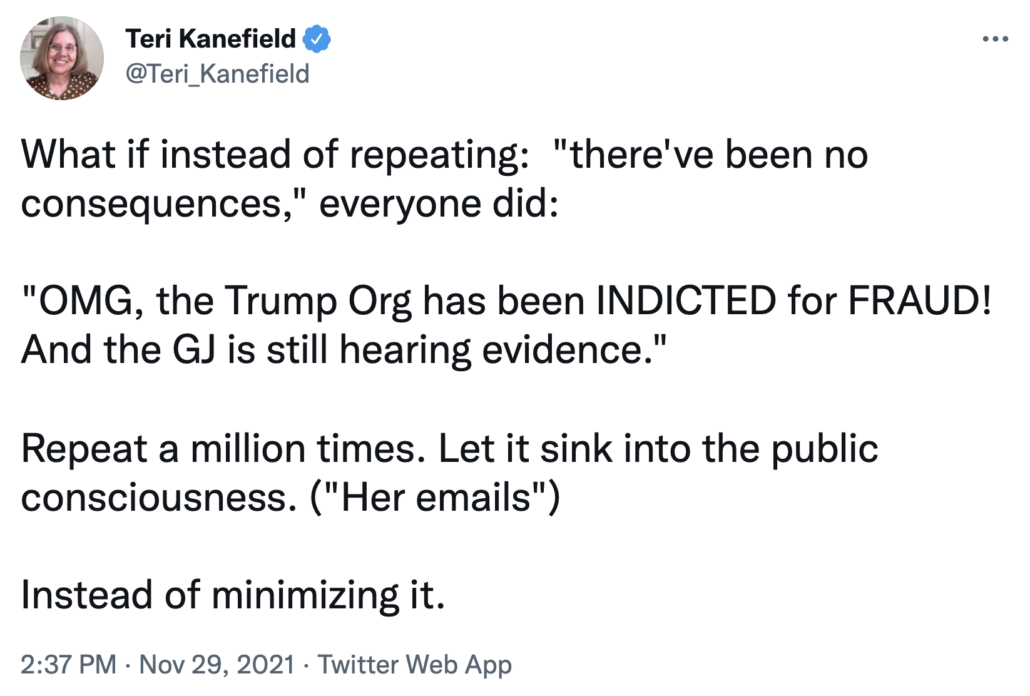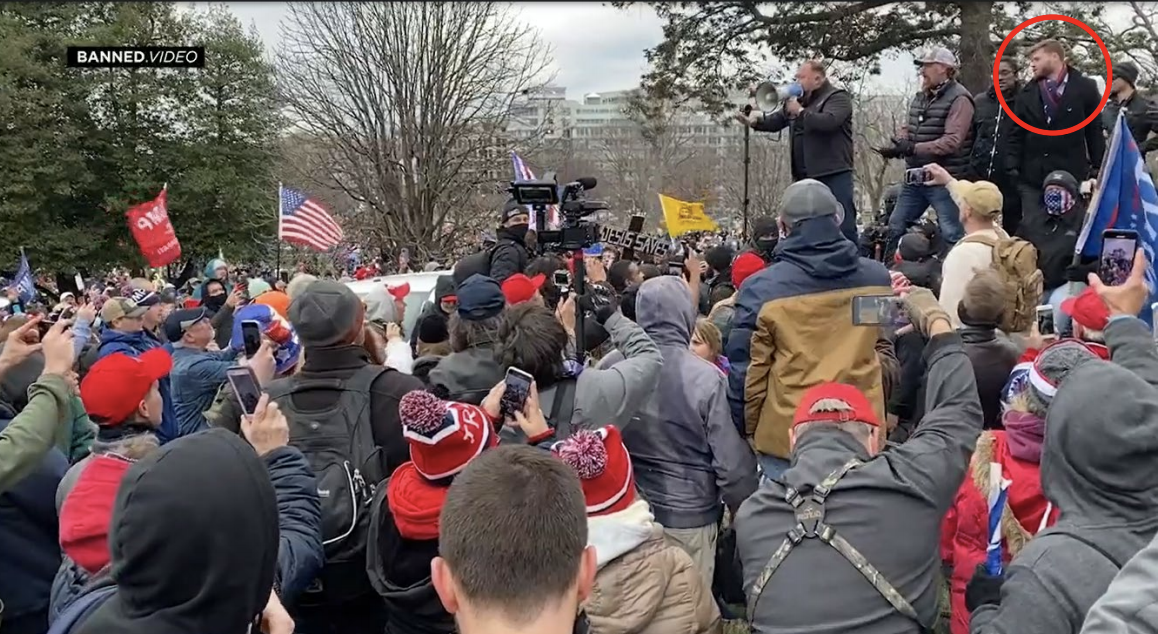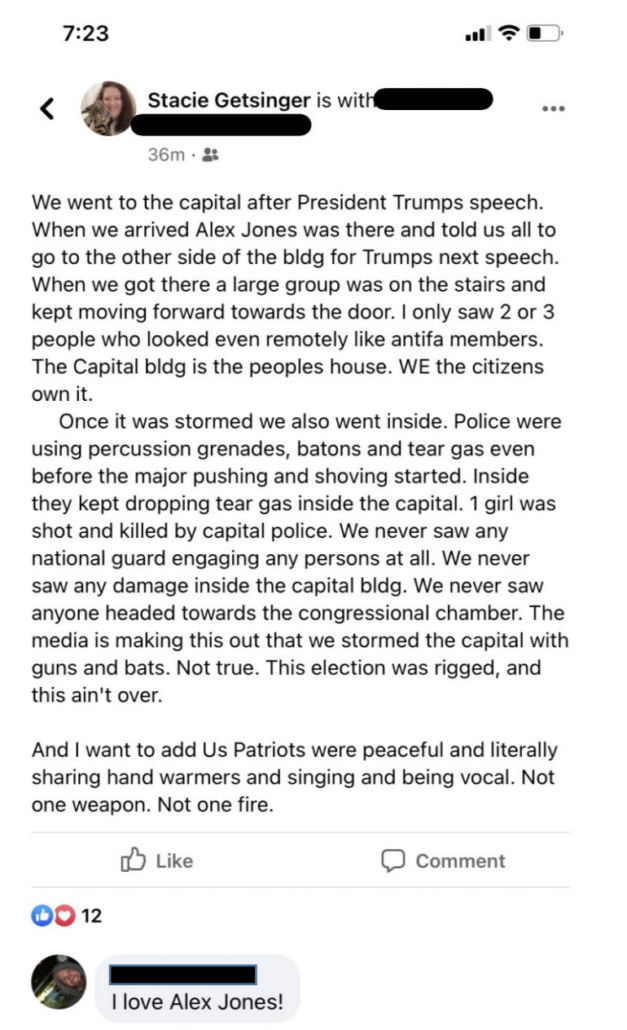Exactly a month ago, I did a post noting that the TV lawyers claiming there was no proof that DOJ was investigating anyone close to Trump were either ignorant of or ignoring six Trump associates who were being investigated. I wanted to update that post with developments from the last month, because (in addition to the contempt prosecution for Steve Bannon), we’ve learned of investigations into at least two more Trump associates.
Note that four of these — Sidney Powell, Alex Jones, Roger Stone, and Mark Meadows — definitely relate to January 6 and a fifth — the investigation into Rudy Giuliani — is scoped such that that it might include January 6 without anyone knowing about it.
Tom Barrack
Last week, Trump’s top donor, Tom Barrack, filed a motion to dismiss his indictment for serving as an unregistered agent of the Emirates.
As he did in a prior status hearing, that motion complained that Billy Barr’s efforts to undermine this investigation failed.
[T]he government’s unjustified two-year delay in charging Mr. Barrack also warrants dismissal of the indictment. The government had all the evidence on which the indictment was based in 2019. The indictment pleads the conspiracy terminated in April 2018, and the alleged false statements occurred in June 2019. Why the government waited more than two years, and until after a change in administration, is a question only it can answer, but it should answer it especially given the paramount First Amendment interests at stake. Had the government brought this case when its investigation was complete in 2019, recollections regarding Mr. Barrack’s June 2019 interview would have been fresh and the harm from the government’s failure to make a contemporaneous record might have been mitigated. The lengthy delay has also prejudiced Mr. Barrack’s ability to identify, preserve, and secure documentary evidence and obtain evidence from witnesses whose memories have faded. The government has provided no explanation for its delay, and the specter that the government intentionally delayed bringing this case for political reasons or tactical advantage hangs heavily over this case. Because Mr. Barrack has been deprived of a fair opportunity to defend himself, the indictment should be dismissed. [my emphasis]
Barrack and DOJ are also fighting over whether Barrack can unseal discovery in an attempt to discredit this investigation.
Barrack filed the specified materials in connection with pretextual arguments in his motion to dismiss, and he all but acknowledges that he seeks their unsealing in a bid to improperly influence public opinion.
As noted before, according to reporting from 2019, this investigation was a Mueller referral, so it’s proof that Garland’s DOJ will pursue such referrals. According to CNN reporting, the indictment was all ready to go in July 2020, a year before it was actually charged. That provides a measure of how long it took an investigation that was deemed complete at a time when Barr seemingly prohibited filing it to be resuscitated under Garland: at least four months.
Barrack’s prosecution proves that DOJ can indict a top Trump associate without leaks in advance. But it will also be an early test about a Trumpster’s ability to discredit the notion that any of them can be held accountable.
Jury selection for Barrack’s trial is now scheduled to start on September 7.
Rudy Giuliani
Since my last post on this topic, Special Master Barbara Jones reported on the progress of the privilege review of 16 devices seized from Rudy Giuliani on April 28, 2021.
Here’s a summary of what that review and the earlier known seizures of Rudy’s communications in the Ukraine-related investigation into Rudy:
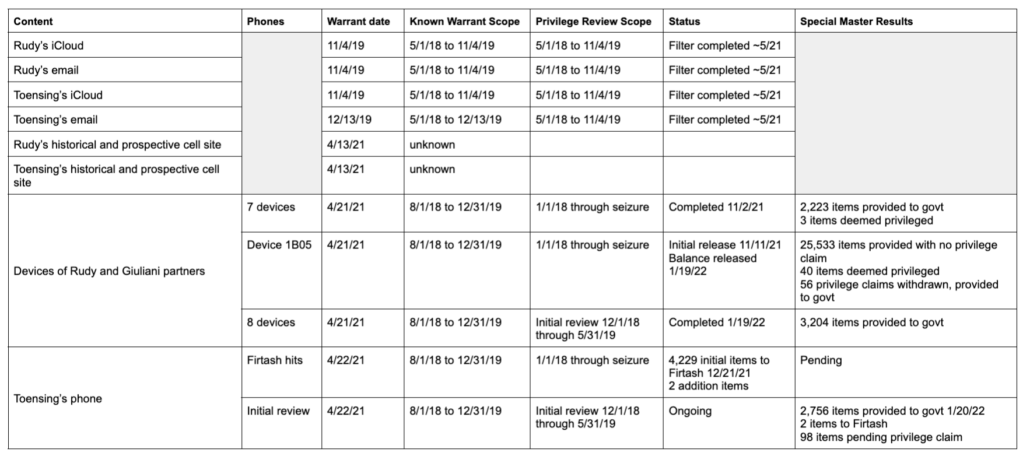
The known warrants for Rudy’s phones pertain to whether, in the lead-up to Trump’s impeachment for trying to coerce Ukraine’s assistance in the 2020 election, Rudy was acting as an unregistered agent of Ukraine.
There’s good reason to believe DOJ could show probable cause to access Rudy’s phones from April 2018 (before he formally became Trump’s lawyer), because during that period he was attempting to buy Michael Cohen’s silence with a pardon. There’s equally good reason to believe that act of obstruction is one of the referrals still redacted in the Mueller Report.
On or about April l 7, 20 l 8, Cohen began speaking with an attorney, Robert Costello, who had a close relationship with Rudolph Giuliani, one of the President’s personal lawyers. 1022 Costello told Cohen that he had a “back channel of communication” to Giuliani, and that Giuliani had said the “channel” was “crucial” and “must be maintained.” 1023 On April 20, 2018, the New York Times published an article about the President’s relationship with and treatment of Cohen. 1024 The President responded with a series of tweets predicting that Cohen would not ” flip” :
The New York Times and a third rate reporter . . . are going out of their way to destroy Michael Cohen and his relationship with me in the hope that he will ‘flip. ‘ They use nonexistent ‘sources’ and a drunk/drugged up loser who hates Michael, a fine person with a wonderful family. Michael is a businessman for his own account/lawyer who I have always liked & respected. Most people will flip if the Government lets them out of trouble, even if it means lying or making up stories. Sorry, I don’t see Michael doing that despite the horrible Witch Hunt and the dishonest media! 1025
In an email that day to Cohen, Costello wrote that he had spoken with Giuliani. 1026 Costello told Cohen the conversation was “Very Very Positive[.] You are ‘loved’ … they are in our corner … . Sleep well tonight[], you have friends in high places.”1027
Similarly, there’s good reason to believe DOJ could show probable cause to access Rudy’s phone for his involvement in Trump’s attempted coup, not least because Rudy himself tweeted out some texts he exchanged with a Proud Boy associate discussing specific insurrectionists in the aftermath of the attack.
We wouldn’t know if DOJ had obtained warrants for those separate periods, because those periods will be covered by Jones’ review one way or another.
But because of the temporal scope Judge Paul Oetken approved last year, Jones has completed a privilege review of all communications that date between January 1, 2018 through April 28, 2021 on 8 of the devices seized from Rudy (April 28 was the day the devices were seized). We can’t know what dates during which Rudy was using those 8 devices. It could well be that they were older phones with nothing recent.
But we know that of the communications on the phone with the most texts and chats — the phone designated 1B05 — the government received 99.8% of any communications dated between January 1, 2018 and April 28, 2021 and they received those communications no later than January 21.
Of particular note, Rudy at first tried to claim privilege over 56 items from phone 1B05. He thought better of those claims in 19 cases. And then, after Jones deemed 37 of them not to be privileged, he backed off that claim as well. During a period when Jones and Rudy’s team would have been discussing those 37 items, Judge Oetken issued a ruling saying that the basis for any privilege claims (but not the substance of the communications) would have to be public. After precisely the same kind of ruling in the Michael Cohen Special Master review, Trump backed off his claim of privilege for Cohen’s recording about the hush payments. That may be what persuaded Rudy to withdraw his claim of privilege over those materials here, as well.
And whether or not DOJ has already accessed the communications Rudy conducted during 2020 and 2021 on any of the 16 devices seized from him, we know all the phones Rudy was using in April 2021 are in DOJ’s possession and that Judge Oetken has already approved a privilege review to cover those communications.
In any case, the details of the Rudy investigation show, at a minimum, that Barr went to extraordinary lengths to attempt to kill this investigation (and may have even ordered that FBI not review the materials seized in 2019). It took mere weeks after Garland took over, however, for the investigation to take very aggressive steps.
It also shows that SDNY managed to renew this investigation without major leaks.
Robert Costello
Last Friday, Steve Bannon revealed that DOJ had seized the toll records of his lawyer, Robert Costello, the same guy that would be at the center of any predication for any investigation into Rudy’s attempts to obstruct the Mueller investigation. Some outlets are claiming that this was just part of the investigation into Bannon, but that cannot be right, for several reasons. First, DOJ didn’t ask for the most intrusive set of those records — email metadata from between March 5 and November 12, 2021 — until the day they indicted Bannon. The returns on those requests could not have been presented to the grand jury, because DOJ didn’t receive them until December 7. Plus, scope of that request not only dates back to before the September 23 subpoena that is the basis for the Bannon contempt prosecution, it dates back before the January 6 Committee that issued the subpoena in the first place. DOJ obtained those Internet toll records for a reason that extends beyond the subpoena fight; they cannot pertain (just) to the known prosecution of Bannon.
It may well be they relate to obstruction related to Rudy though. Here’s DOJ’s letter responding to Bannon’s complaints about this seizure, which given some confusion bears further discussion.
We write in response to your January 6, 2022, letter requesting information about internal deliberations and investigative steps relating to Mr. Costello and any other attorneys who have represented Mr. Bannon. As you are aware, and as we discussed in a phone call with Mr. Corcoran and Mr. Schoen on December 2, 2021, Mr. Costello represented Mr. Bannon before the January 6th Select Committee (“the Committee”) in relation to the subpoena it issued to Mr. Bannon and is, therefore, a witness to the conduct charged in the Indictment. We understand that attorney Adam Katz also represented Mr. Bannon with respect to the Committee and, therefore, also is a potential witness. We are not aware of any other attorneys who represented Mr. Bannon with respect to the Committee.
Aside from the information that Mr. Costello voluntarily disclosed on behalf of Mr. Bannon during the investigation of this matter, the Government has not taken any steps to obtain any attorney work product relating to any attorney’s representation of Mr. Bannon or to obtain any confidential communications between Mr. Bannon, Mr. Costello, and Mr. Katz, or between Mr. Bannon and any other attorneys.
We have provided all discoverable material in the prosecution team’s possession, custody, or control relating to Mr. Costello’s and Mr. Katz’s involvement in the conduct charged in the Indictment.
The first paragraph explains a warning DOJ gave when Costello first raised noticing an appearance in the contempt prosecution for Bannon (it’s likely Costello had been tipped off by his firm that DOJ had obtained his toll records by that point). DOJ makes clear that, by voluntarily sitting for two meetings at which FBI agents were present, Costello made himself a witness about the basis for which Bannon gave for blowing off the Committee subpoena. As I have noted, Costello gave materially inconsistent answers at that meeting, likely giving the FBI probable cause to investigate whether he had made false statements; the easiest and least intrusive way to test whether his claims were true was to test whether his claims about the existence and timing of communications with Trump’s lawyers were true or not — thus the toll record seizure.
The remaining two paragraphs disclaim any impact on Bannon. Call records are not work product and, while sensitive, are not treated as privileged (and in any case, date to a period in which Costello was not representing Bannon criminally). The interviews were work-product, claims about the advice Costello gave Bannon (including the email Costello described in which he told Bannon to be BEWARE because he was likely to be referred to DOJ for prosecution). But Costello shared that work-product voluntarily. DOJ has not otherwise obtained the work-product or confidential content of Costello pertaining to Bannon.
That paragraph says nothing about Costello’s representation of Rudy, though.
And the following paragraph makes it more likely this statement intentionally stops short of covering all of Costello’s work product. It limits the statement about materials in its possession to the prosecution team (excluding, for example, SDNY prosecution teams). It doesn’t address confidential communications between Rudy and Costello. And for good measure, it limits its statements to Costello’s involvement in the January 6 subpoena, not other matters.
Costello may not count as a Trump associate directly. But this is all about Trump’s extended effort to obstruct investigations into his conduct. And because of the way Costello has, on at least two occasions, been the weak link that pierced privilege covering such cover-ups, may be a key investigative target.
Sidney Powell
Sidney Powell may be another key lawyer who pierced privilege.
Several different outlets have reported that there is a grand jury investigation into Sidney Powell’s grifting off lies about election fraud.
Since my last post on investigations into Trump’s associates, Sidney Powell’s lawyer revealed she is “cooperating” in that investigation, though in contemplating “cooperation” with the January 6 committee, she is reserving privilege claims about “advice” to Donald Trump.
A lawyer for Sidney Powell, a well-known, Trump-connected attorney, acknowledged that her organization’s fundraising connected to the 2020 election is subject to an ongoing federal criminal investigation.
Powell’s lawyer, Howard Kleinhendler, told CNN that his client “is cooperating” with the investigation into her organization, Defending the Republic, by the US Attorney’s Office in the District of Columbia. That cooperation includes “rolling productions” of documents.
[snip]
Still, when the committee asks Powell about communications she had with Trump, that is “going to get a little hairy,” Kleinhendler told CNN.
He said Powell believes that the times Trump called her to ask for legal advice may be covered by attorney-client privilege — even if he never paid her to be his or his campaign’s lawyer. Powell never worked as a lawyer for the former President personally or for the Trump campaign, Kleinhendler said.
“We’ll have to deal with that, and we’ll have to try to discuss with the committee to see how” to handle privilege issues, Kleinhendler said.
But Powell can’t claim privilege for the bulk of the period during which she was helping Trump steal the election. After Trump claimed Powell represented him on November 15, 2020, Rudy stated as clearly as he can manage on November 22 that, “Sidney Powell is practicing law on her own. She is not a member of the Trump Legal Team. She is also not a lawyer for the President in his personal capacity.”
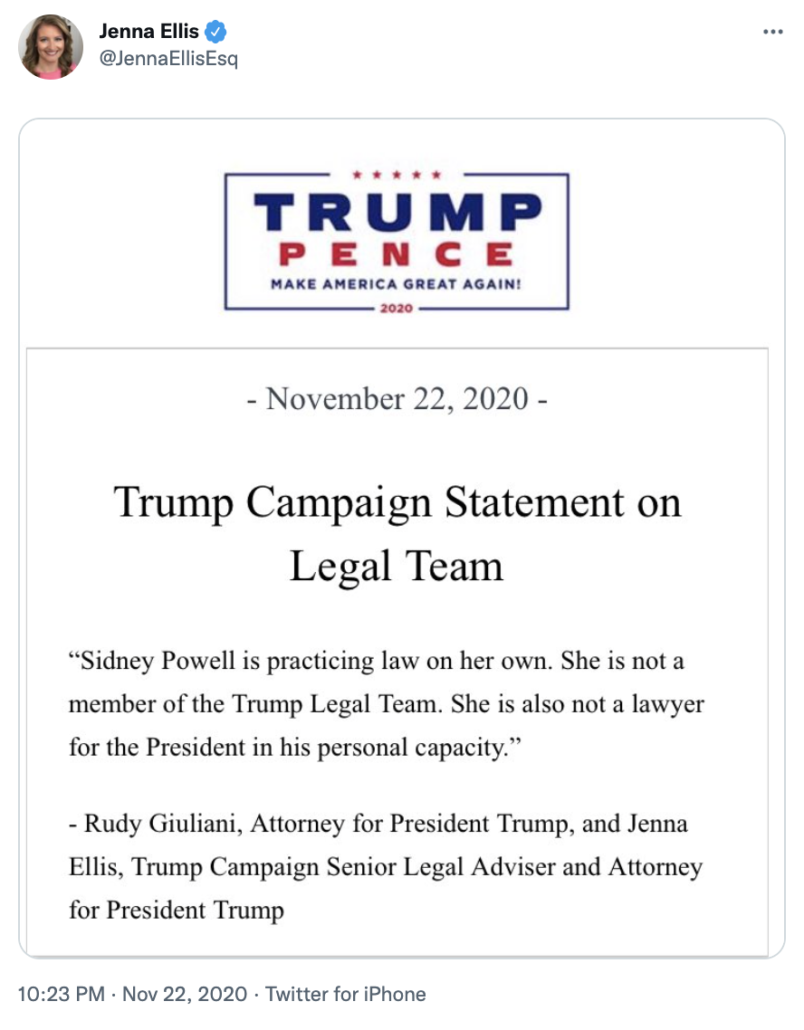
With that statement, Rudy effectively waived privilege for any communications implicating both of them from that date forward, long in advance of a December 18 meeting at which Powell purportedly told him about all the communications she sent him in the interim.
Similarly, most of these events post-date the time, November 25, when Powell can credibly claim to be representing Mike Flynn in an effort to nullify the consequences of his lies and foreign agent work, because that’s when Trump pardoned Flynn. Certainly, Powell’s claim to be criminally representing Flynn ended no later than December 8, when Emmet Sullivan dismissed the case. So she may want to claim privilege, but well before the critical meeting between Rudy, Powell, Flynn, and Patrick Byrne on December 18, all visible basis for that claim was affirmatively gone, and for anything seized from her email provider, she’s likely not going to be involved in making that claim anyway.
Mark Meadows
In a number of posts, I have argued that DOJ would be better off treating the January 6 contempt referral as, instead, a referral into obstruction of justice for the way Mark Meadows withheld or deleted evidence pertaining to the coup attempt.
I can’t prove that has happened.
What is certain, however, is that Deputy Attorney General Lisa Monaco confirmed that DOJ is investigating the fake electors.
“We’ve received those referrals. Our prosecutors are looking at those and I can’t say anything more on ongoing investigations,” Monaco said in an exclusive interview.
And the January 6 contempt referral made clear that communications in Meadows possession show that he was at the center of that effort.
Mr. Meadows received text messages and emails regarding apparent efforts to encourage Republican legislators in certain States to send alternate slates of electors to Congress, a plan which one Member of Congress acknowledged was ‘‘highly controversial’’ and to which Mr. Meadows responded, ‘‘I love it.’’ Mr. Meadows responded to a similar message by saying ‘‘[w]e are’’ and another such message by saying ‘‘Yes. Have a team on it.’’34
34Documents on file with the Select Committee (Meadows production).
Meadows has been frantically trying to ensure whichever of these communications occurred on his personal accounts get shared with the Archives. Which means DOJ now knows they can learn details of the fake elector conspiracy by obtaining those records from the Archives.
Alex Jones
Over the last year, DOJ has collected a great deal of evidence that the Oath Keepers, the Proud Boys, and an alarming number of former Marines worked together to open a second breach on the Capitol via the East doors. Instrumental to the success of this breach were a large number of MAGA tourists who joined in the breach. DOJ has proof that at least some of them were there because Alex Jones had lured them there by lying about a second Trump speech on the East side of the building.
DOJ has already arrested two of Jones’ employees: videographer Sam Montoya in April and on-air personality Owen Shroyer in August.
In a November DOJ response in the Shroyer case, Alex Jones was referred to as Person One, as numerous others believed to be under active investigation have been described. That filing debunked the cover story that Shroyer and Jones have used to excuse their actions on January 6. Judge Tim Kelly, who is also presiding over the most important Proud Boys cases, is currently reviewing Shroyer’s First Amendment challenge to his arrest.
This strand of the investigation has likely necessarily lagged the exploitation of former Alex Jones’ employee Joe Biggs’ iCloud and phone, which were made available to Biggs’ co-travelers in August. This post has more on the developments in the Montoya and Shroyer cases, including that a different prosecutor recently took over Monotya’s case.
Roger Stone
Roger Stone, who has close ties to both the Oath Keepers and Proud Boys who coordinated the attack on the Capitol, has shown up repeatedly in the Oath Keeper conspiracy. In March, DOJ debunked Connie Meggs’ claim not to know her co-conspirators by including a picture of an event she did with Roger Stone and Graydon Young (this was close to the time that Connie’s husband Kelly organized an alliance between Florida militias).
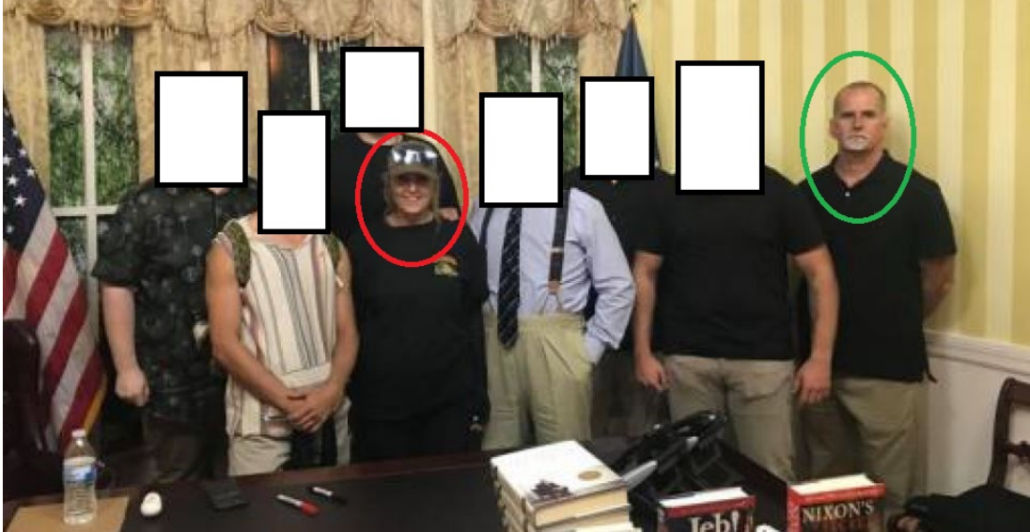
In a May 25 FBI interview, Mike Simmons, the field commander for the Oath Keepers on January 6, appears to have been specifically asked why Simmons had so many conversations with Joshua James, who was providing security for Roger Stone at the Willard the morning of the insurrection. Simmons appears to have explained that James called him every time Stone moved.


In June, Graydon Young, the Floridian who attended that Stone event with Connie, entered a cooperation agreement. Also in June, Mark Grods, one of the Oath Keepers who had been at the Willard that morning, entered a cooperation agreement. In September, Jason Dolan, a former Marine from Florida who also interacted with Stone in advance of the insurrection and who was waiting there on January 6 as the other Oath Keepers, a number of Proud Boys (including former Alex Jones employee Joe Biggs) and Alex Jones himself all converged at the top of the East steps just as the doors were opened from inside, entered a cooperation agreement.
Erik Prince
In my last post, I described a grand jury investigation into a powerful Trump associate that had subpoenaed witnesses in the investigation in the second half of last year. NYT just disclosed that investigation, which is into Erik Prince.
Mr. Prince is separately under investigation by the Justice Department on unrelated matters, according to people familiar with the case. The scope of that investigation is unclear.
The investigation reflects a reopening of an investigation Billy Barr shut down in 2019-2020. What’s interesting about it is the scope seems somewhat different and the investigating District is different than the earlier investigation. That may suggest that, for investigations that Barr shut down, DOJ would need to have a new evidence to reopen it. But the existence of this investigation shows, again, that Garland’s DOJ will go after powerful Trump associates.
In any case, I keep laying all this out, and TV lawyers keep angrily insisting that this public evidence does not exist.
I can’t guarantee that any of these investigations will lead to charges (or, in the case of Bannon and Barrack, convictions). Investigations alone will not save democracy.
But there is abundant evidence that DOJ is not shying away from aggressively investigating the suspect criminal conduct of Trump flunkies.

